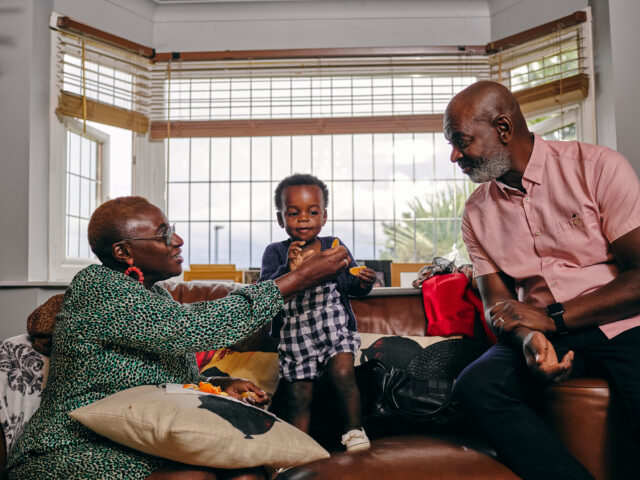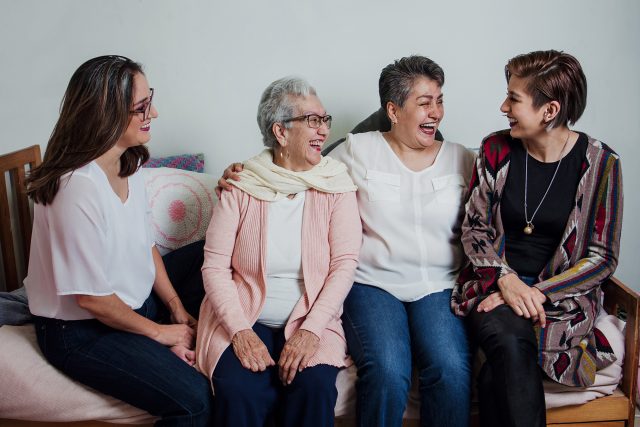
An Inheritance Can Make All the Difference in the World – Here’s Who Is Missing Out
Alicia H. Munnell is a columnist for MarketWatch and senior advisor of the Center for Retirement Research at Boston College.
Racial disparities in bequests lead to a widening wealth gap.
We have been looking at the importance of wills in the transfer of wealth from one generation to another. Our most recent study, using data from the Health and Retirement Study (HRS), looks at the extent to which receiving an inheritance increases the likelihood of planning to leave a bequest and having a will, and the extent to which having a will relates to the realization of bequest expectations.
Having a will is really important. In the absence of a will, a decedent’s assets are distributed according to state intestacy law. These rules generally work fine for traditional families, but can result in the wrong outcome when the intended beneficiaries are not related by blood, marriage, or formal adoption. Moreover, dying intestate is a particular problem when the estate is modest and the largest asset is the home, where multiple heirs are often unable to coordinate on maintaining or selling the property – destroying value in the process.
Despite the importance of wills, only about two-thirds of households ages 70+ have a will, and that percentage has been declining over time (see Figure 1).
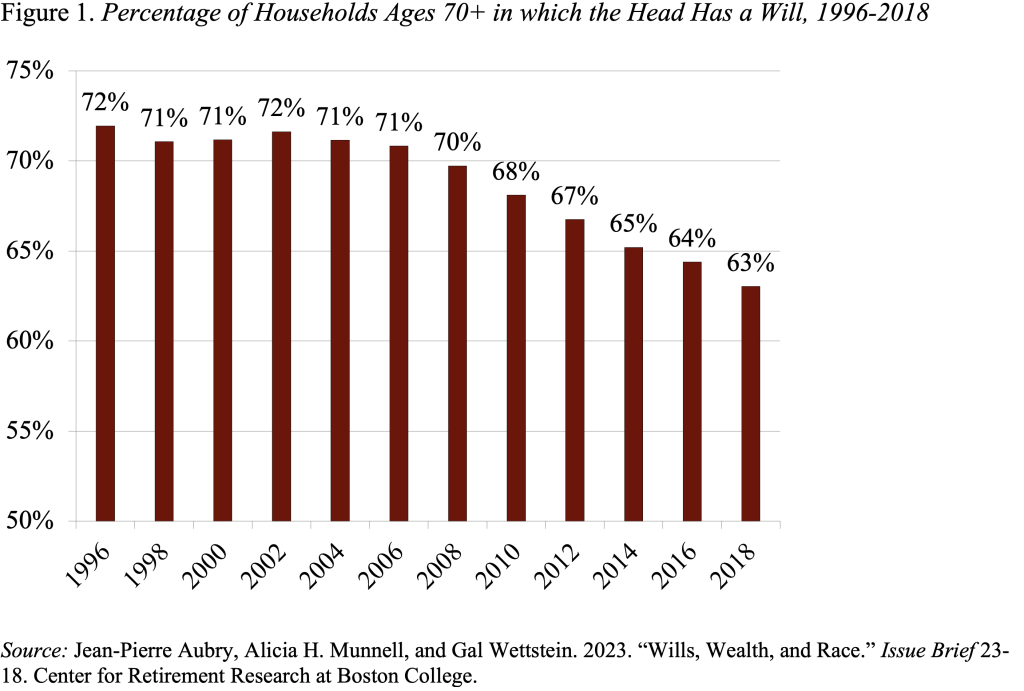
And the percentages of Black and Hispanic families with wills are significantly lower (see Figure 2).
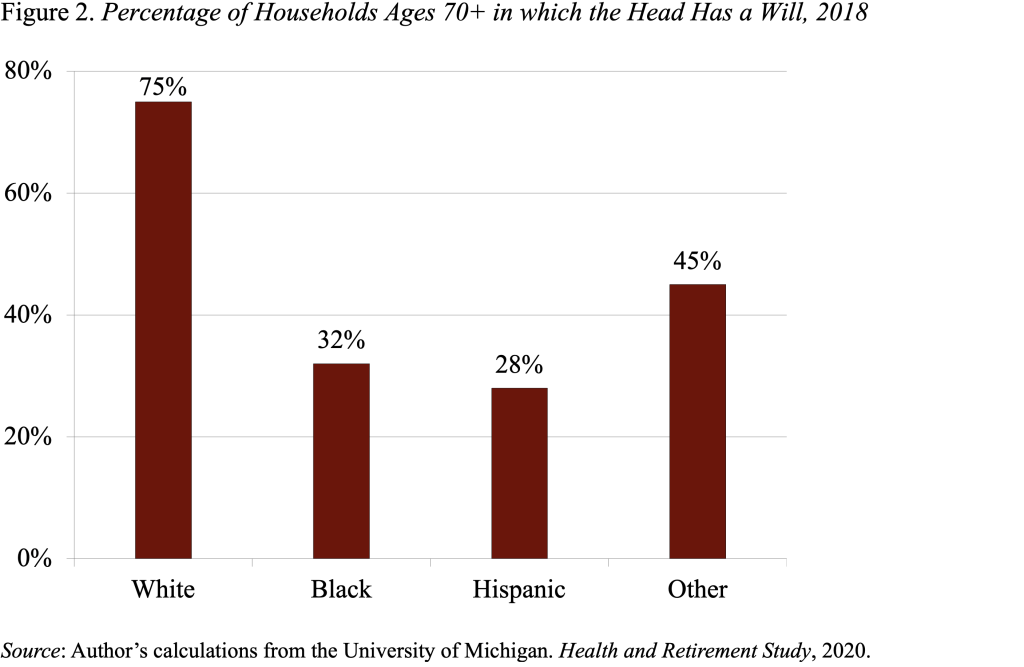
The first question is why Black, Hispanic, and other minority respondents are significantly less likely to have a will than White respondents. Regression analysis showed that having a will is related to having received an inheritance, and non-White households are significantly less likely than their White counterparts to receive any inheritance, even accounting for education, age, and marital status (see Figure 3).
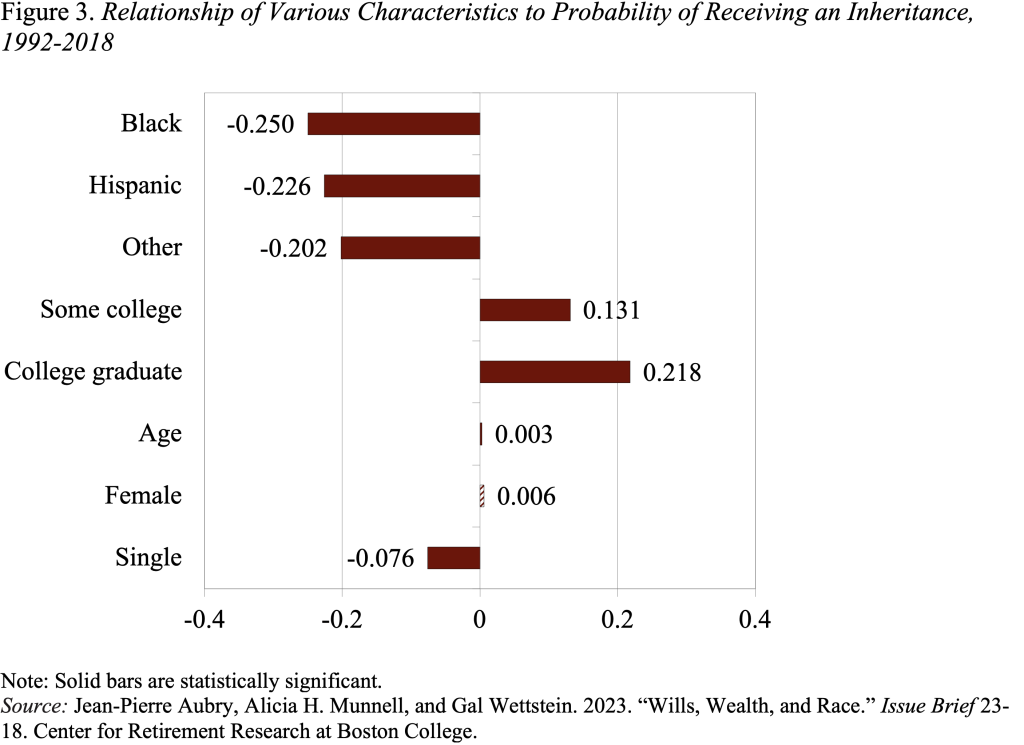
The next question is what factors determine whether the individual plans to leave a bequest. The results are generally consistent across bequest amounts. Having received an inheritance increases the likelihood of leaving bequests of all amounts, and non-White respondents report lower expected probabilities of leaving bequests. This sign flips, however, for bequests of at least $500,000, possibly because successful non-Whites feel a strong obligation to ensure that assets are left to their families.
The remaining question is whether these intentions are achieved. The HRS includes “exit interviews” for people who have died. The sample is substantially different from the full sample – the share of Black respondents is lower, the share with a will is higher, and the age is older – so the estimated impact of wills is likely a lower bound relative to a less-winnowed-down sample.
The results are somewhat hard to read, but let me try. The equations show the likelihood of failing to leave an estate of at least $10,000, $100,000, and $500,000, respectively, conditional on the self-reported expectation of leaving such an estate.
The results show that Black and Hispanic decedents are less likely to meet their target, and all these results are statistically significant except for the lowest target amount for Blacks (see Figure 4). Strikingly, though, across race and ethnicity, those with wills are less likely to fall short of their expected bequests at each target amount.
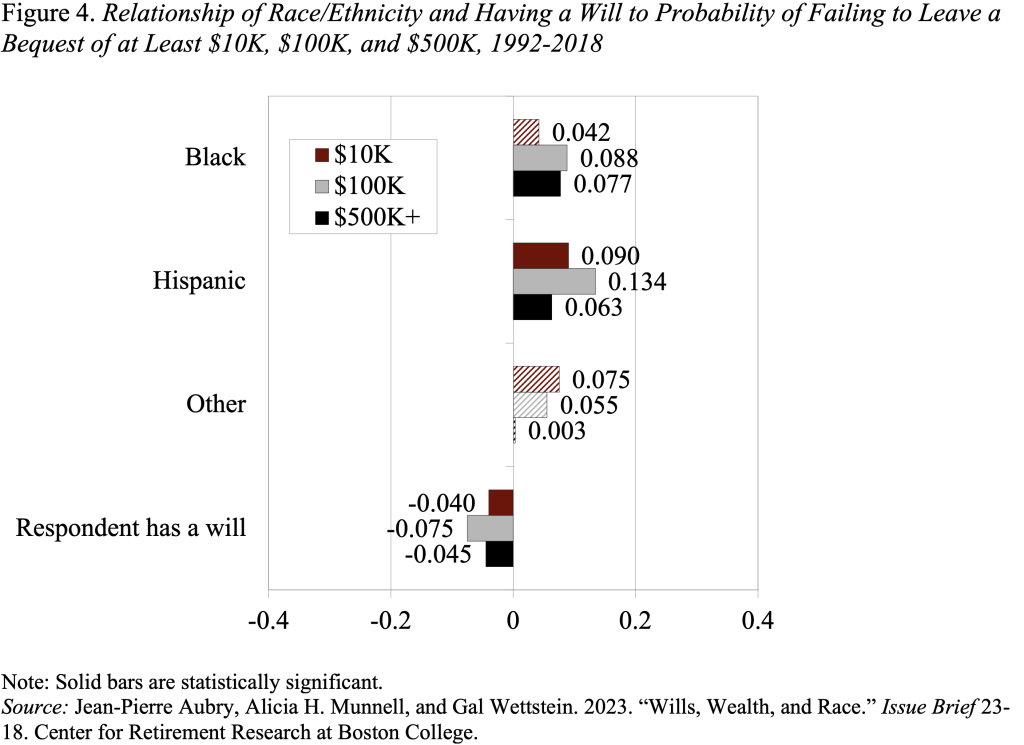
These results underscore the racial gap in bequests since, even for those with the same expectation of leaving a bequest, Black and Hispanic decedents fail to meet their targets more often. This finding is particularly alarming, given that Black and Hispanic respondents have much lower expectations of leaving substantial bequests and are less likely to have a will. The good news is that wills seem to mitigate such failures.







